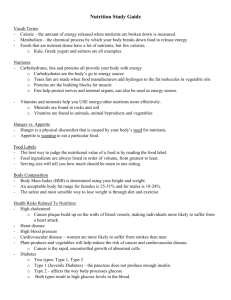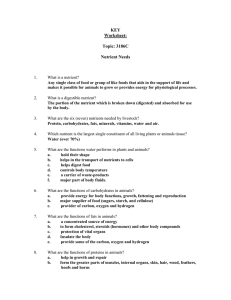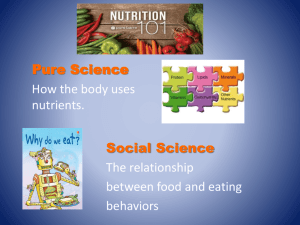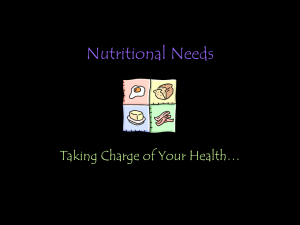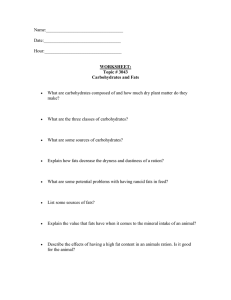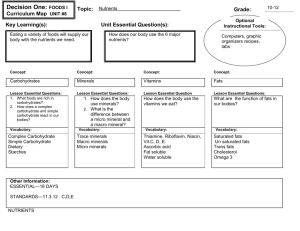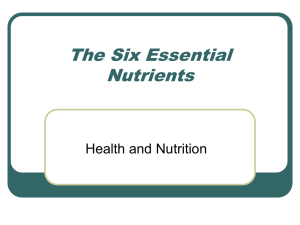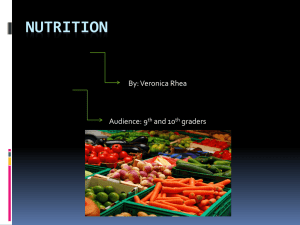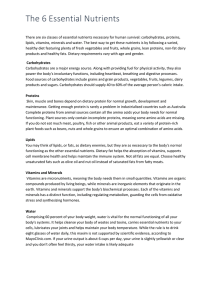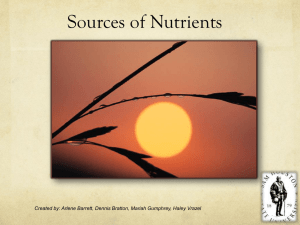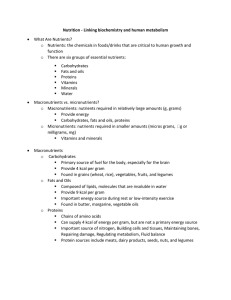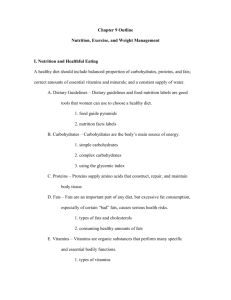The Six Types of Nutrients
advertisement
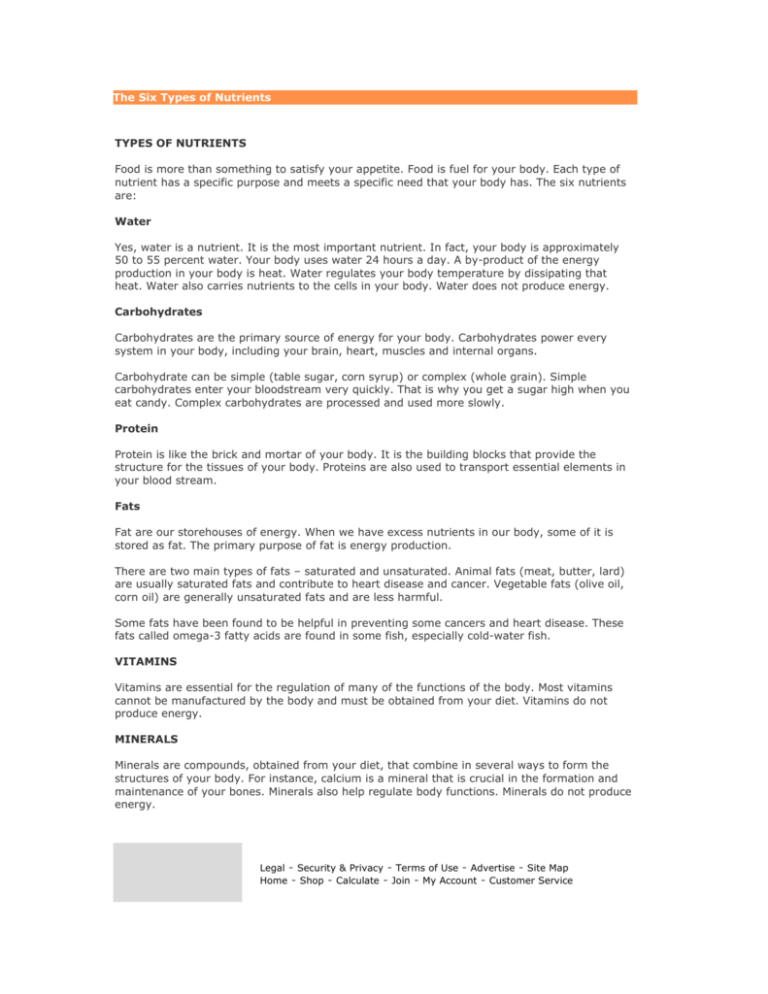
The Six Types of Nutrients TYPES OF NUTRIENTS Food is more than something to satisfy your appetite. Food is fuel for your body. Each type of nutrient has a specific purpose and meets a specific need that your body has. The six nutrients are: Water Yes, water is a nutrient. It is the most important nutrient. In fact, your body is approximately 50 to 55 percent water. Your body uses water 24 hours a day. A by-product of the energy production in your body is heat. Water regulates your body temperature by dissipating that heat. Water also carries nutrients to the cells in your body. Water does not produce energy. Carbohydrates Carbohydrates are the primary source of energy for your body. Carbohydrates power every system in your body, including your brain, heart, muscles and internal organs. Carbohydrate can be simple (table sugar, corn syrup) or complex (whole grain). Simple carbohydrates enter your bloodstream very quickly. That is why you get a sugar high when you eat candy. Complex carbohydrates are processed and used more slowly. Protein Protein is like the brick and mortar of your body. It is the building blocks that provide the structure for the tissues of your body. Proteins are also used to transport essential elements in your blood stream. Fats Fat are our storehouses of energy. When we have excess nutrients in our body, some of it is stored as fat. The primary purpose of fat is energy production. There are two main types of fats – saturated and unsaturated. Animal fats (meat, butter, lard) are usually saturated fats and contribute to heart disease and cancer. Vegetable fats (olive oil, corn oil) are generally unsaturated fats and are less harmful. Some fats have been found to be helpful in preventing some cancers and heart disease. These fats called omega-3 fatty acids are found in some fish, especially cold-water fish. VITAMINS Vitamins are essential for the regulation of many of the functions of the body. Most vitamins cannot be manufactured by the body and must be obtained from your diet. Vitamins do not produce energy. MINERALS Minerals are compounds, obtained from your diet, that combine in several ways to form the structures of your body. For instance, calcium is a mineral that is crucial in the formation and maintenance of your bones. Minerals also help regulate body functions. Minerals do not produce energy. Legal - Security & Privacy - Terms of Use - Advertise - Site Map Home - Shop - Calculate - Join - My Account - Customer Service
